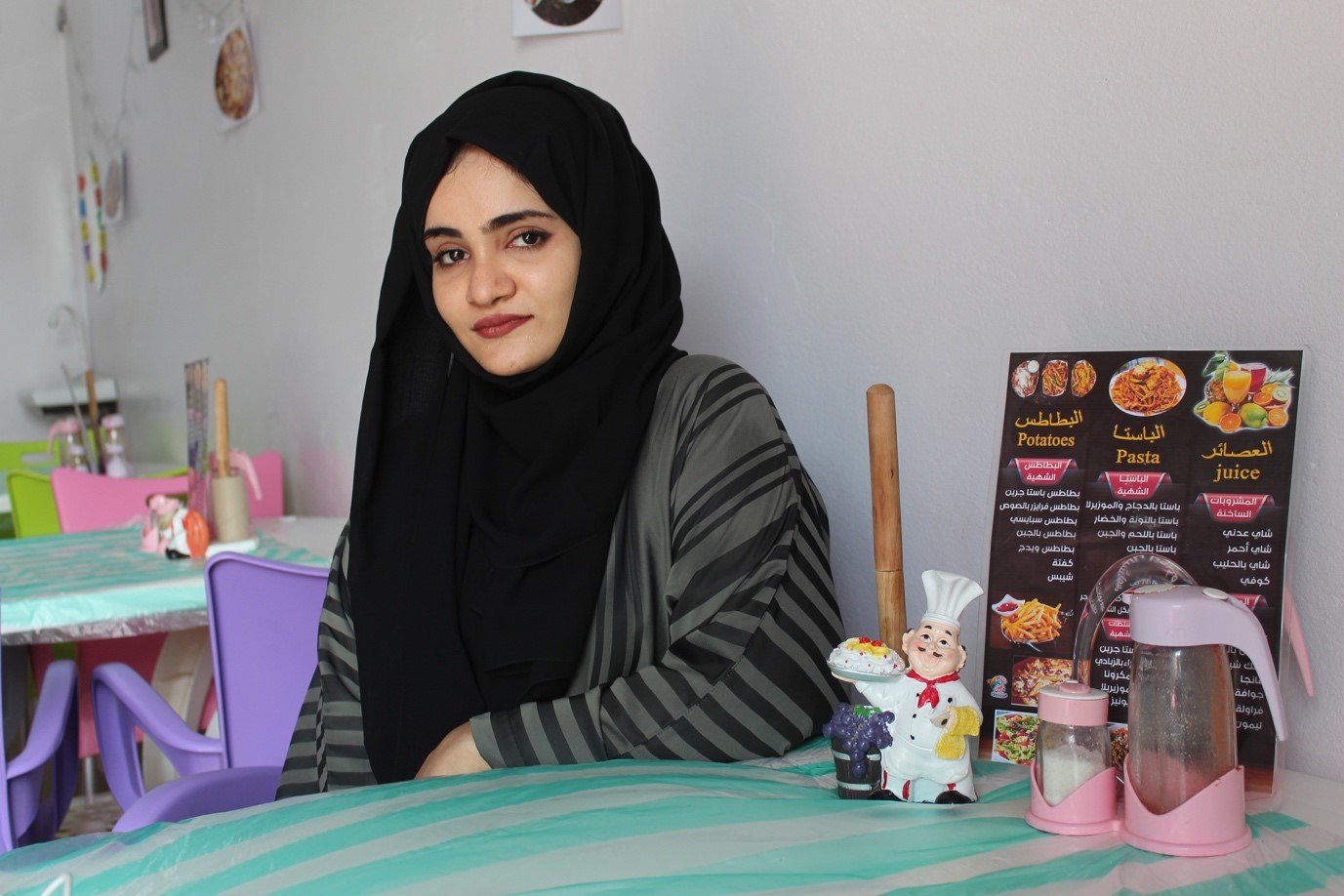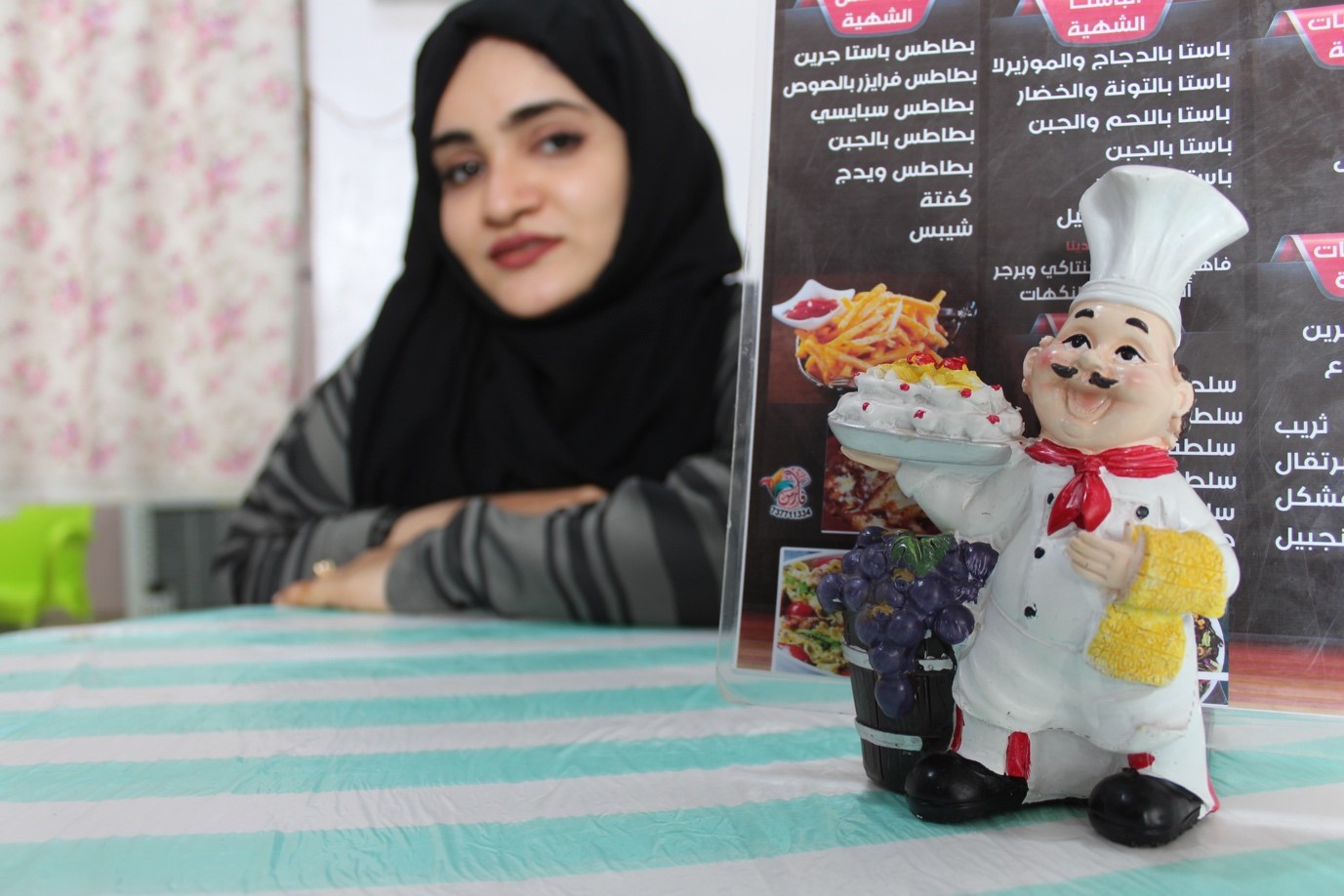“I started thinking about business after graduating from high school, so I established a class for teaching children in my home,” she says. “And after one year I started to work in my home kitchen, selling meals to neighbours and celebrations.”
This was how Khadra entered into the business world. It was her dream to start a restaurant, so she sold all her jewellery and collected her savings, as well as borrowing money from her family. A year before the beginning of the conflict, in 2015, she was able to open her restaurant, Pasta Green in Aden. It was a big success.
But then the war started and disrupted the lives of millions of Yemeni people. Khadra’s restaurant was one of the casualties – it stopped working after just one year.
“When the conflict in Aden ended in 2016, I was unable to reopen the restaurant due to a lack of money. I couldn’t pay my debts, rent and staff salaries,” says Khadra. “But then, a miracle happened and I participated in a CARE project.”
With funding from the H&M Foundation, CARE’s project gave business training to women entrepreneurs, as well as loans to help them establish their own businesses.
“I received a training in how to manage my business,” says Khadra. “Meeting other women like me was very inspiring and motivating; it made me feel that I am not alone in this battle. I was also able to get a loan which helped me to cover all my expenses, and bring the restaurant back to work. This petal I opened was the petal of inspiration and motivation.”
Khadra says that looking back at her life she has learned valuable lessons. ”With every struggle, I learned something, and I will keep learning until my last breath. Thank you very much to CARE for helping me, and I hope that next I will be able to buy a mobile food cart,” she says with eyes full of hope.

